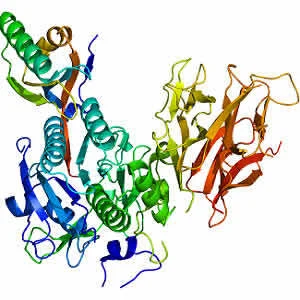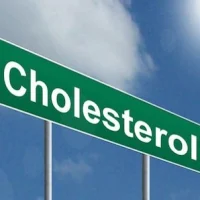Variants in the genes encoding HMGCR (the target of statins) and PCSK9 (the target of PCSK9 inhibitors) that lowered LDL, or "bad" cholesterol, in each gene were associated with nearly identical protective effects on the risk of cardiovascular events per unit reduction in LDL cholesterol, according to new research published in The New England Journal of Medicine.
"PCSK9 inhibitors are currently available, but we still await the dedicated cardiovascular outcomes trials. Our findings suggest that treatment with a PCSK9 inhibitor, used either alone or in combination with a statin, should reduce the risk of cardiovascular events to the same degree as do statins per unit reduction in LDL cholesterol," says senior author Marc S. Sabatine, MD, MPH, Chairman of the Thrombolysis in Myocardial Infarction (TIMI) Study Group, the Lewis Dexter, MD, Distinguished Chair in Cardiovascular Medicine at Brigham and Women's Hospital.
See Also: New Blood Test can Diagnose Inherited Heart Conditions
In addition, results showed variants in both genes also increased the risk of diabetes, but to a lesser extent than they reduced the risk of cardiovascular events. Notably the risk of diabetes appeared to be restricted to those individuals who already had impaired glucose metabolism, so called "pre-diabetes".
For the study, BWH and a group of international researchers used genetic scores consisting of independently inherited variants in the genes encoding PCSK9 and HMGCR, which affect cholesterol levels. Researchers randomly assigned 112,772 participants from 14 studies, with 14,120 cardiovascular events and 10,635 cases of diabetes, to groups according to inherited LDL cholesterol levels. They compared the effects of lower LDL cholesterol levels that were medicated by variants in PCKS9, HMGCR, or both, on the risk of cardiovascular events and the risk of diabetes.
Results showed that genetic variants that mimic the effect of PCSK9 inhibitors and statins had significantly similar effects as each other on the risk of cardiovascular events and similar effects as each other on the risk of diabetes.
The research team hopes to present the results of the first and largest dedicated cardiovascular outcomes trial of a PCSK9 inhibitor sometime next year. In the meantime, "these genetic data are another powerful form of evidence supporting their use as another tool in our armamentarium to lower LDL cholesterol and reduce cardiovascular risk in our patients," Dr. Sabatine adds.
Source: Brigham and Women's Hospital
Image Credit: Wikimedia Commons
References:
Sabatine MS et al. (2016) Variation in PCSK9 and HMGCR and Risk of Cardiovascular Disease and Diabetes. N Engl J Med. DOI: 10.1056/NEJMoa1604304.
Latest Articles
PCSK9, HMGCR, Cardiovascular Disease, statins, cardioprotective effects
Variants in the genes encoding HMGCR (the target of statins) and PCSK9 (the target of PCSK9 inhibitors) that lowered LDL, or "bad" cholesterol, in each gene were associated with nearly identical protective effects on the risk of cardiovascular events per










